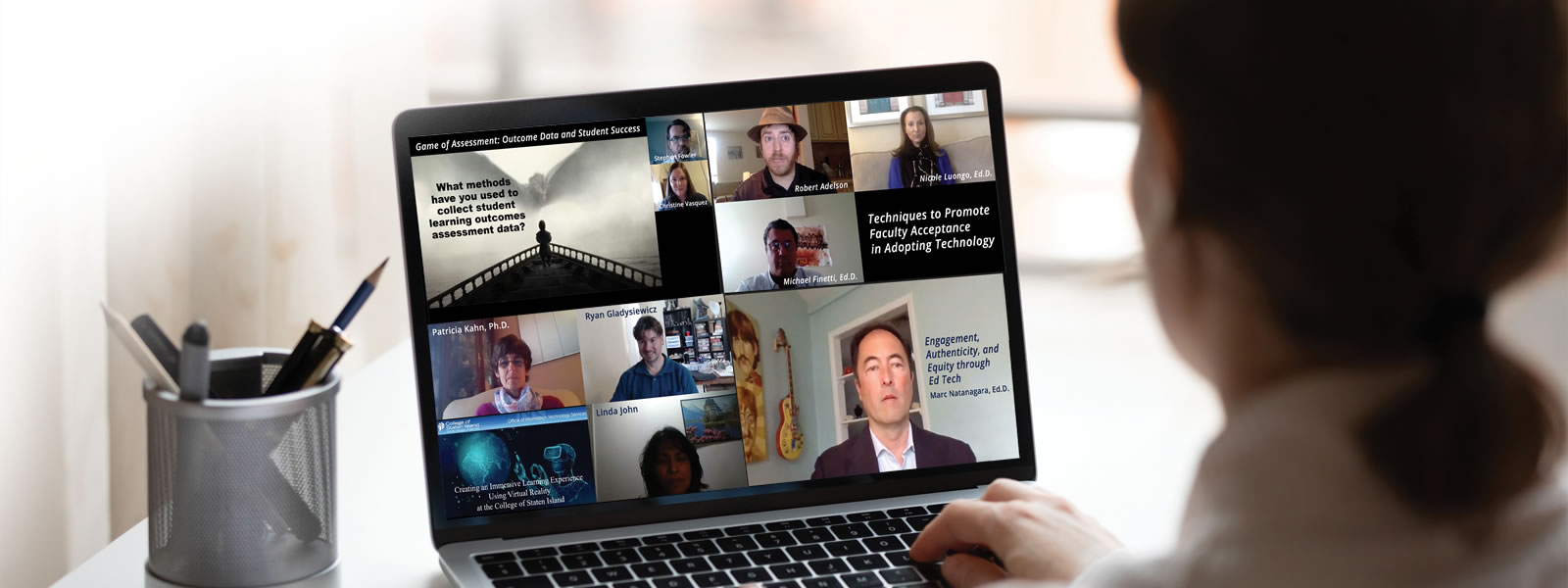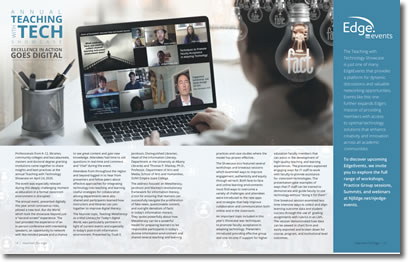Professionals from K-12, libraries, community colleges and baccalaureate, masters and doctoral degree granting institutions came together to share insights and best practices at the annual Teaching with Technology Showcase on April 24, 2020.
The event was especially relevant during this deeply challenging moment as education in a formal classroom environment is disrupted.
The annual event, presented digitally this year amid coronavirus risks, piloted a new tool, Run the World, which took the showcase beyond just a “second-screen” experience. The tool provided the experience of an in-person conference with interesting speakers, an opportunity to network with like-minded people and a chance to see great content and gain new knowledge. Attendees had time to ask questions in real-time and comment and “chat” during the event.
Attendees from throughout the region and beyond logged in to hear from presenters and fellow peers about effective approaches for integrating technology into teaching and learning. Useful strategies for collaboration among departments were also shared and participants learned how instructors and libraries can join together to improve digital literacy.
The keynote topic, Teaching Metaliteracy as a Vital Literacy for Today’s Digital World, was particularly pertinent in light of current events and especially in today’s post-truth information environment. Presented by Trudi E. Jacobson, Distinguished Librarian, Head of the Information Literacy, Department at the University at Albany Libraries and Thomas P. Mackey, Ph.D., Professor, Department of Arts and Media, School of Arts and Humanities, SUNY Empire State College.
The address focused on Metaliteracy, Jacobson and Mackey’s revolutionary framework for information literacy, a tool for ensuring that learners can successfully navigate the proliferation of fake news, questionable content, and outright denialism of facts in today’s information morass. They spoke powerfully about how Metaliteracy can be a powerful model for preparing learners to be responsible participants in today’s divisive information environment and shared several teaching and learning practices and case studies where the model has proven effective.
The Showcase also featured several workshops and breakout sessions which examined ways to improve engagement, authenticity and equity through ed tech. Both face-to-face and online learning environments must find ways to overcome a variety of challenges and attendees were introduced to the new apps and strategies that help improve collaboration and communication both online and in the classroom.
An important topic included in this year’s Showcase was techniques to promote faculty acceptance in adapting technology. Presenters introduced providing effective group and one-on-one IT support for higher education faculty members that can assist in the development of high-quality teaching and learning experiences. The presenters explained engaging ways for IT staff to work with faculty to provide assistance for classroom technologies. The presentation gave examples of ways that IT staff can be trained to demonstrate and guide faculty to use technology without “doing it for them”.
One breakout session examined less time intensive ways to collect and align learning outcome data and student success through the use of grading assignments with rubrics in an LMS. The session demonstrated how data can be viewed in chart form and easily exported and broken down for course, program, and institutional level outcomes.
The Teaching with Technology Showcase is just one of many EdgeEvents that provides a platform for dynamic discussions and valuable networking opportunities. Events like this one further expands Edge’s mission of providing members with access to optimal technology solutions that enhance creativity and innovation across all academic communities. To discover upcoming EdgeEvents, we invite you to explore the full range of workshops, Practice Group sessions, Summits, and webinars at here.




